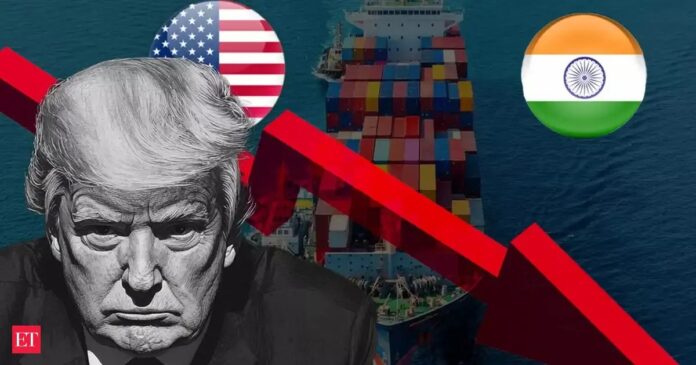The Trump Factor: A Comedic Politician with Serious Implications for India
Donald Trump has been a source of fascination for many, including myself. His larger-than-life persona, punctuated by amusing quips and often riotous rhetoric, positions him as a political figure that could easily rival the funniest actors in Indian cinema. However, while his antics may elicit laughter from afar, his policies—such as the imposition of a 27% import duty on US imports from India—are far from humorous. Yet, I find myself not entirely inclined to despair over this development.
The Tariff Tango
Trump has claimed that his tariffs are set at half the level of those imposed by other countries. However, this assertion raises questions about the methodology behind such calculations. Most countries do not impose a single tariff rate on all imports; rather, they have a complex structure of tariffs that varies by product. For Trump’s claim to hold water, one would need to calculate an average tariff across various categories, ideally weighted by the significance of each imported good. Unfortunately, the formula provided by the United States Trade Representative (USTR) includes a mysterious symbol—ε (epsilon)—whose value and calculation remain undisclosed. This lack of transparency leaves us in the dark about how these tariffs were determined and what they truly mean for trade relations.
The Economic Relationship with the US
India’s economic ties with the United States are significant, with the US accounting for 17.4% of Indian exports in 2023-24. While some may argue that focusing solely on physical exports is misguided—given that India’s intellectual services are among its largest exports—the reality remains that the US is a crucial market for India. Early reactions to Trump’s tariffs have been cautiously optimistic, as some believe that his aggressive stance towards competitors like China may inadvertently benefit Indian exporters. However, this optimism must be tempered with caution.
The Unpredictability of Trump
One of the most concerning aspects of Trump’s leadership is his unpredictability. His aggressive policies seem to stem from a belief that he is punishing the world for its perceived ingratitude towards the US. This mindset is unlikely to change, and it raises the specter of an economic war that could have far-reaching consequences. If other nations retaliate, they may not limit their responses to trade; financial markets could also become battlegrounds. The shifting dynamics could lead to a reconfiguration of global alliances, with countries like London and Frankfurt potentially rising as financial hubs at the expense of New York.
The Potential for Economic Instability
The ramifications of Trump’s policies could destabilize the international financial system, affecting all economic activities globally. In a world where economic players wield powerful weapons, predicting outcomes becomes a daunting task. The situation may evoke memories of the 1931 economic crisis, which required the analytical prowess of John Maynard Keynes to navigate. While such a comparison may seem sensational, it is essential for governments to prepare for the worst-case scenarios.
India’s Economic Standing
Despite the challenges posed by global dynamics, India has experienced economic growth, often attributed to circumstantial factors rather than strategic management. While India has lagged behind China, the latter’s inability to convert its economic success into global dominance has inadvertently attracted capital to India. This accidental success, however, cannot be relied upon indefinitely.
Preparing for the Future
As we navigate this complex landscape, it is crucial for India to remain vigilant and adaptable. The emerging global order demands a keen understanding of international relations and economic strategies. While seeking advice is prudent, it is essential to be discerning about the sources of that advice—especially when it comes to the unpredictable genius of Washington.
In conclusion, while Trump may provide entertainment from a distance, his policies carry significant weight that could impact India’s economic future. As we brace for the potential fallout, it is imperative to remain informed, prepared, and proactive in our approach to the evolving global economy.

